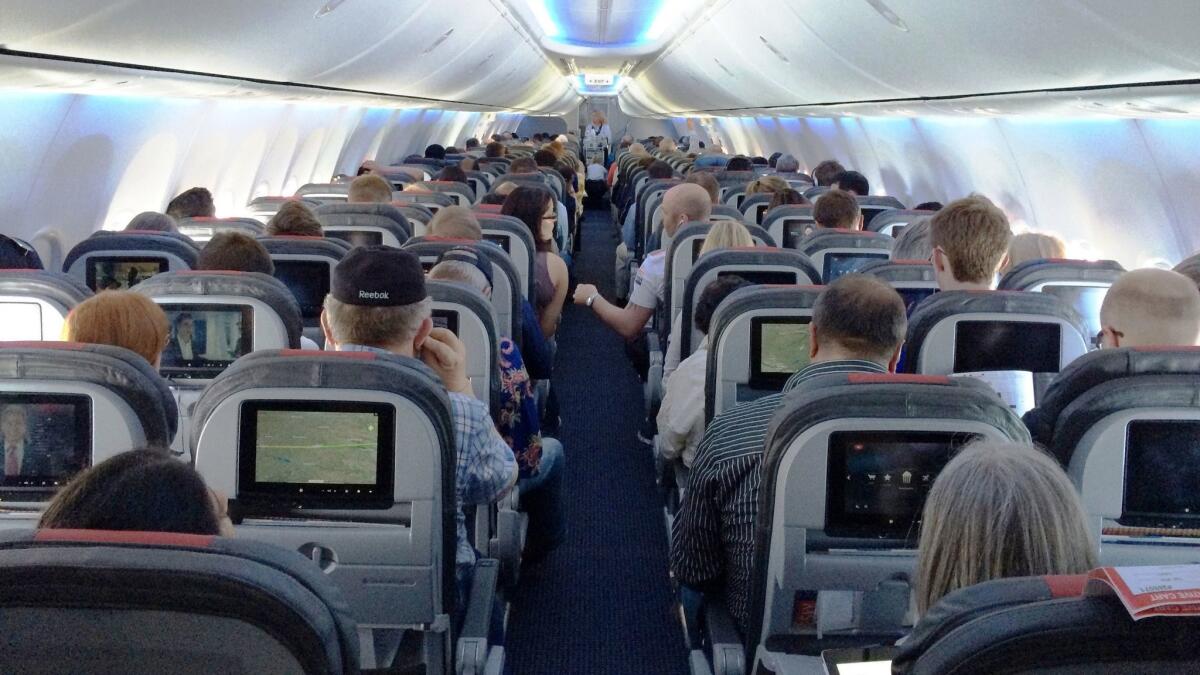Senator says basic economy seats on planes add to travel confusion and airline profits

Ask airline executives about the introduction of “basic economy” seats to the fare options given passengers, and they will tell you how much profit the new offering has generated.
Ask U.S. Sen. Bill Nelson (D-Florida) about the seats, and he will blast them as just another way the airline industry is tricking passengers into paying more.
Basic economy — a bare-bones fare that doesn’t let passengers change flights, select their seats or upgrade to roomier seats — was introduced by American and United last year to compete with ultra-low-cost carriers such as Spirit and Frontier Airlines. Delta Air Lines launched the seat in 2014.
Any passenger who books the basic economy seat with American and United can’t bring a carry-on bag unless it fits under the seat.
Airline executives say the low prices for basic economy seats draw passengers to book a ticket but then pushe them to buy to more expensive tickets with roomier seats or the ability to change travel plans.
During American Airlines’ latest earnings report, Don Casey, American Airlines’ senior vice president for revenue management, bragged about the success of basic economy seats at the Fort Worth, Texas-based carrier.
“The product is working entirely as we expected and so we’re seeing the buy-up rates that we expected to see and we’re seeing the sell-up amounts that we expected to see,” he said. “So basic economy is really, at this point, working as designed.”
Nelson’s office issued a report this month, criticizing basic economy seats for doing exactly what airline executives hoped they would do — make money.
“The airlines are using basic economy to upsell consumers to regular economy fares,” the report says. It suggest travelers investigate the total cost of a basic economy seat before booking and urged federal regulators to adopt rules to make airline fees more transparent.
To read more about the travel and tourism industries, follow @hugomartin on Twitter.
More to Read
Inside the business of entertainment
The Wide Shot brings you news, analysis and insights on everything from streaming wars to production — and what it all means for the future.
You may occasionally receive promotional content from the Los Angeles Times.











